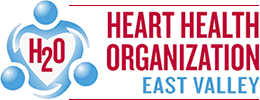Author: Dr. Jagwinder S. Sraow
Answer: The simple answer is: Yes – always.
Chest pain is an important symptom of heart attack, but not the only symptom. The other symptoms include chest pressure or discomfort, pain or discomfort in other parts of the body, including the arms, back, neck, jaw, or stomach, shortness of breath, heartburn, nausea or vomiting, sweating or cold, clammy skin, irregular heart beating, dizziness, feeling lightheaded, or fainting.
Any time you are scared or worried about your chest, call for an ambulance, especially if the chest pain is new or severe, if it is radiating to your jaw or left arm, or is associated with profuse sweating or shortness of breath, or if it gets worse with any activity such as walking, climbing or other physical activity.
The majority of the time, chest pain does not mean a heart attack and can be due to many other reasons such as heartburn, pneumonia, or blood clot in the lungs, arthritis of chest bone joints, chest pain related to vigorous activity involving the chest, infection around the heart, shingles, chest injury, panic disorder, or depression. Rarely, the severe chest pain can occur as a result of dissection of the aorta (separation of the inner lining of the big blood vessel coming out from the heart). Therefore you should never take a chance. You should always seek medical attention and call an ambulance. Do not try to drive yourself to the hospital.
Chest pain is always given a priority in the emergency department, saving lives. At Chandler Regional Medical Center and Mercy Gilbert Medical Center, in case of a heart attack, you are always quickly attended to by the cardiologist, and the blocked artery causing the heart attack is quickly opened within 60-70 minutes; a lot sooner than the national average.

